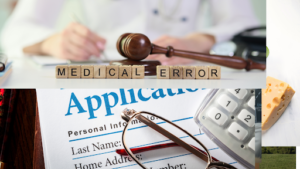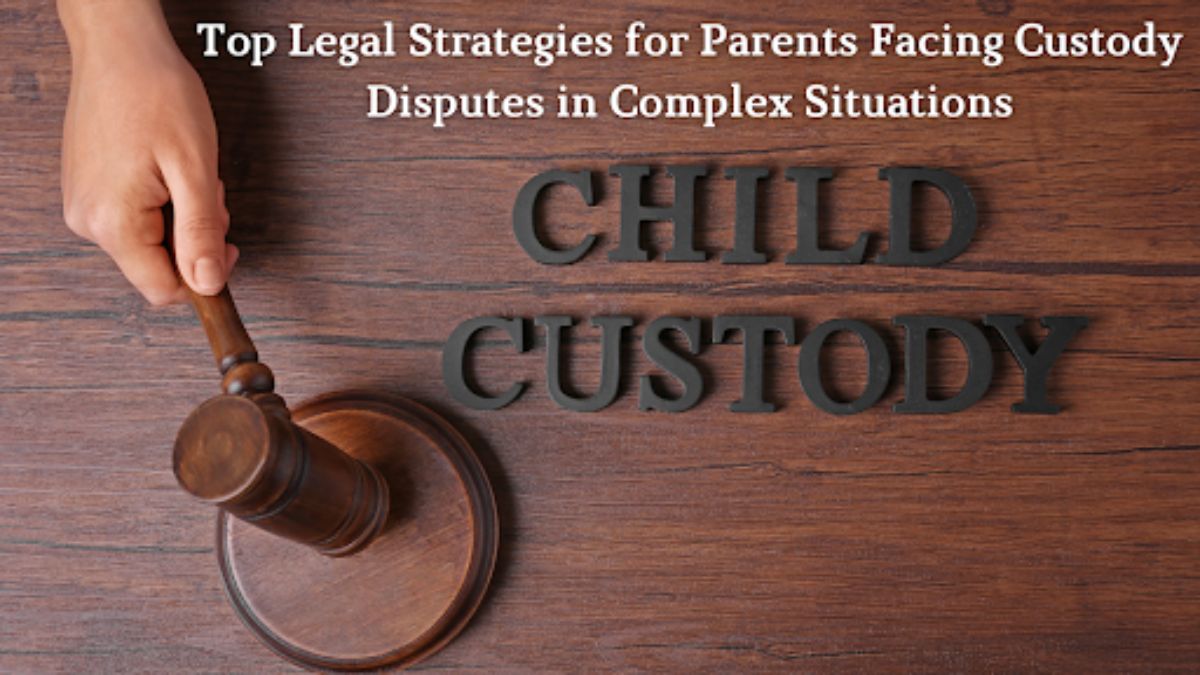LAW
Essentials of Collaborating with a Real Estate Lawyer

Working with a real estate lawyer ensures smooth property transactions and minimizes legal risks. These professionals handle tasks such as reviewing contracts, resolving title issues, navigating zoning laws, and ensuring compliance with local regulations. Their expertise protects buyers and sellers from potential disputes by identifying hidden risks and negotiating favorable terms. Lawyers also assist with drafting documents like purchase agreements and leases, safeguarding interests throughout the process. Legal guidance is crucial in avoiding costly errors for complex deals, such as commercial transactions or estate planning. Collaborating with a real estate lawyer provides peace of mind, ensuring secure and well-structured property investments.
The Advantages of Consulting a Real Estate Lawyer
Engaging a California real estate attorney can be pivotal in navigating the complex and often overwhelming landscape of real estate transactions. Whether you are purchasing your first home, managing the sale of a significant investment, or involved in a more intricate commercial deal, the seasoned expertise of a legal professional ensures every aspect is thoroughly scrutinized and executed without a hitch. Real estate laws, replete with intricate particulars and varying state regulations, can pose challenges even to the adept. A lawyer’s experience safeguards your interests and brings tranquility to a stressful endeavor.
Furthermore, lawyers are indispensable when negotiating and drafting legally sound contracts. Their insight ensures that every agreement is equitable and has no ambiguities that can lead to future disputes. Moreover, during the critical closing phase, an attorney works meticulously, coordinating with financial institutions and other parties to avoid any last-minute complications. This shields you from unanticipated obligations and guarantees a smooth transfer of ownership.
Everyday Situations Where Legal Guidance Is Essential
Numerous circumstances in real estate dealings make tapping into a lawyer’s expertise beneficial and essential. Property disputes often require legal interpretation to mediate effectively, whether related to boundary disagreements or easement infringements. Similarly, zoning issues or violations can complicate planned developments, and this is where a knowledgeable attorney’s guidance proves invaluable.
Complications also arise in everyday real estate transactions. According to a Federal Trade Commission guide, challenges such as title defects or discovering covenants unknown to purchasers can derail even the simplest of sales. Having a lawyer ensures these hurdles are cleared efficiently, with minimal impact on the transaction timeline.
How to Choose the Right Real Estate Lawyer
Selecting the appropriate lawyer requires a discerning eye. Considerations should include the lawyer’s experience in real estate law, their history of successfully navigating cases similar to yours, and their communication style, which should be informative and transparent. During your initial consultation, pose questions regarding their previous real estate dealings, how they foresee handling your case, and how fee structures are arranged. By comprehensively assessing these factors, you align yourself with an expert whose professional style and acumen resonate with your legal needs.
Understanding Legal Fees and Costs
Legal services in real estate can vary widely in cost, influenced by the transaction’s complexity and the lawyer’s expertise. Most real estate attorneys operate on either a flat fee or an hourly basis, and developing a clear financial understanding from the outset is crucial. Other potential expenses, such as additional charges for title searches or specialized document preparation, may arise. Discussing these details early on ensures no surprises and helps create a realistic budget for your legal needs.
The Function of Attorneys in Real Estate Deals
Lawyers’ roles in real estate transactions are varied and extend beyond mere document review. From the outset, they engage in negotiations to ensure favorable terms. They meticulously scrutinize every contractual clause to ensure understanding and favorable conditions. During transactions, they remain vigilant, addressing compliance requirements set forth by state and federal laws to safeguard clients from legal pitfalls. This comprehensive support clarifies complex matters and streamlines the transaction, enhancing client confidence.
Real-Life Success Stories
Real-life examples abound of how legal intervention has markedly benefitted property owners. In one scenario, a homeowner on the brink of foreclosure could navigate a successful loan modification through adept legal negotiation, showcasing how strategic legal acumen can yield favorable outcomes. Similar success stories, where legal aid resolved complex property disputes or facilitated equitable settlements, underscore an attorney’s significant impact in the real estate sector.
Legal Terminologies Made Simple
Several terms used in the real estate industry can confuse clients and need clarification. Words like “encumbrances,” which indicate a claim or debt on the property, like a mortgage, or “easements,” which relate to the right to cross or otherwise utilize someone else’s land, are commonly used. A lawyer can elucidate these terms, making them understandable and ensuring you fully grasp your rights and responsibilities as a property owner.
Preparing for Your Meeting with a Lawyer
Optimizing the time spent with your lawyer involves detailed preparation. Assemble all pertinent documents, such as property deeds, previous sale agreements, and any relevant correspondence related to your case. Organizing these documents before your meeting allows the lawyer to review and understand your situation efficiently, fostering a productive consultation. This forward-thinking approach helps maximize the lawyer’s ability to provide tailored advice and devise a strategy that aligns with your objectives.
LAW
7 Key Ways the Law Recognizes and Addresses Medical Errors

The healthcare system’s approach to medical errors has evolved dramatically over the past decade. Statistics reveal that medical errors rank as the third leading cause of death in America, claiming over 250,000 lives annually. This sobering reality has pushed lawmakers and medical institutions to develop robust frameworks for addressing these incidents.
The Evolution of Medical Error Recognition
The transformation in how medical institutions handle errors marks a significant shift from previous decades. Modern healthcare facilities now embrace transparency and accountability, moving away from the historical tendency to minimize or conceal mistakes.
This cultural change stems from groundbreaking research showing that open acknowledgment of errors leads to better patient outcomes and fewer repeat incidents. Hospital systems nationwide have implemented new protocols for error reporting and prevention.
1. Mandatory Reporting Systems
Healthcare facilities must report serious medical errors to state and federal authorities. The National Quality Forum recognizes 29 distinct never events that require immediate reporting within 24 hours of discovery. Healthcare institutions face substantial penalties, including potential loss of accreditation, for failing to report these serious medical errors promptly. This systematic tracking helps identify patterns, implement preventive measures, and hold institutions accountable.
2. Legal Recognition and Patient Rights
When medical errors occur, patients need strong legal representation to navigate the complex healthcare system. The law recognizes patients’ fundamental right to know about medical errors affecting their care, including full disclosure of what happened and why. Professional legal guidance becomes crucial in understanding and pursuing justice for medical mistakes. Experienced medical malpractice attorneys work tirelessly to ensure patients receive fair compensation and proper care after experiencing medical errors.
Types of Recognized Medical Errors
The law categorizes medical errors into distinct types, each requiring specific handling:
- Diagnostic errors leading to incorrect or delayed treatment
- Medication mistakes involving the incorrect dosage or drug
- Surgical errors including wrong-site procedures
- Communication breakdowns between healthcare providers
Statute of Limitations
American courts enforce strict timeframes for filing medical error claims, typically ranging from one to three years. This limitation ensures timely investigation while evidence remains fresh and witnesses maintain clear recollections. Understanding these deadlines proves crucial for protecting patient rights and securing proper compensation.
Comparison of State Medical Error Laws
| State | Statute of Limitations | Damage caps | Required Expert Testimony |
| California | 1 year | $250,000 | Yes |
| New York | 2.5 years | No cap | Yes |
| Florida | 2 years | Variable | Yes |
| Texas | 2 years | $250,000 | Yes |
3. Investigation Protocols
Healthcare facilities must follow strict investigation procedures when errors occur. Root cause analysis teams conduct thorough investigations within 72 hours of an incident to ensure accurate information gathering. State health departments often conduct parallel investigations for serious errors, providing an additional layer of scrutiny and accountability. These protocols ensure comprehensive documentation and evidence preservation while identifying systemic issues that need addressing.
Patient Safety Organizations
The Patient Safety and Quality Improvement Act established specialized organizations to analyze medical errors. These entities collect confidential data, study patterns, and develop prevention strategies. Their findings guide policy changes and improve healthcare delivery systems nationwide.
4. Standard of Care Requirements
Courts evaluate medical errors against established standards of care within specific medical fields. Medical boards and professional associations regularly update these standards to reflect advances in medical knowledge and technology. Healthcare providers must demonstrate they followed these accepted protocols and guidelines in their decision-making process. Expert witnesses play crucial roles in explaining these standards during legal proceedings.

5. Compensation Mechanisms
The law provides multiple paths for compensating patients affected by medical errors. Modern compensation frameworks consider both the immediate and long-term impacts of medical errors on patients’ lives. State laws increasingly recognize the need for periodic payment systems to ensure long-term care needs are met. Each state maintains unique rules about damage calculations and limitations based on their specific healthcare environments.
6. Documentation Requirements
Healthcare providers must maintain detailed records of all patient interactions and treatments. Modern electronic health record systems include built-in safety features that flag potential errors and inconsistencies in real-time. Federal regulations require healthcare facilities to retain these records for a minimum of seven years, ensuring availability for future reference and legal proceedings. Digital health records have improved tracking capabilities while creating new challenges for privacy protection.
7. Prevention and Reform Measures
Legal frameworks increasingly emphasize error prevention through systematic changes. The Agency for Healthcare Research and Quality mandates specific safety protocols that all healthcare facilities must implement and regularly update. Recent reforms have introduced mandatory safety checklists and time-out procedures for surgical interventions, significantly reducing error rates. Healthcare facilities must implement these mandatory safety protocols alongside regular staff training programs.
Taking Action
Patients encountering medical errors should document everything thoroughly and seek immediate legal consultation. Understanding your rights and the available legal protections ensures proper handling of your case. Medical errors impact lives significantly, requiring prompt and decisive action.
Conclusion
The legal system continues evolving to better address medical errors through enhanced reporting requirements, stricter standards, and improved patient protections. Understanding these mechanisms helps patients navigate challenging situations while promoting healthcare system accountability.
Healthcare providers, legal professionals, and patients must work together to identify, address, and prevent medical errors. This collaborative approach strengthens patient safety while ensuring fair compensation for those affected by medical mistakes.
The path forward requires continued vigilance, improved communication, and commitment to patient safety. Every stakeholder plays a vital role in reducing medical errors and ensuring justice when they occur. Take action today to understand your rights and protections under current medical error laws.
Frequently Asked Questions
How long do I have to file a medical error claim?
Filing deadlines vary by state, ranging from one to three years after the error discovery. Consulting legal professionals immediately helps protect your rights within these timeframes.
What evidence do I need to prove a medical error?
Medical records, expert testimony, witness statements, and documentation of damages form the foundation of successful claims. Early collection and preservation of evidence prove crucial.
How do I know if I have experienced a medical error?
Unexpected treatment outcomes, admission of mistakes by healthcare providers, or discovery of incorrect procedures indicate potential medical errors. Professional evaluation helps determine the validity of concerns.
LAW
Top Legal Strategies for Parents Facing Custody Disputes in Complex Situations

Facing a custody dispute can be one of the most emotionally draining and stressful experiences for a parent. The fear of losing time with your child and the uncertainty of the legal process can be overwhelming.
In these moments, having the right legal strategy becomes essential to protect your parental rights and maintain a strong relationship with your child. This blog outlines the most effective strategies recommended by top child custody attorneys, helping you navigate complex situations with confidence and clarity.
Document Everything in Detail
The Power of Thorough Documentation
Experienced custody attorneys stress that detailed documentation is crucial to winning a custody case. Courts depend on solid evidence, not just verbal claims. Key records to keep include:
- Communication logs with the other parent
- Financial contributions and expenses
- Medical and school records
- Visitation schedules and any deviations
- Incidents of concern
- Photos and videos of positive interactions with your child
Leveraging Technology for Documentation
Modern custody attorneys suggest using co-parenting apps that help you:
- Track communications
- Document expenses
- Record pickup and drop-off times
- Store important documents
- Generate reports for court submissions
These tools can make the documentation process easier and more organized, providing you with critical evidence when needed.
Leveraging Expert Testimony
In custody disputes, child custody attorneys often rely on various expert witnesses to provide objective insights and strengthen their cases. These experts may include child psychologists, custody evaluators, educational specialists, mental health professionals, and substance abuse counselors.
Each expert offers specialized knowledge that can help assess the child’s needs and parental capabilities. To make the most of expert testimony, your custody attorney will help you select qualified professionals, guide you through the evaluation process, and ensure that any unfavorable evaluations are effectively challenged. Presenting expert findings in a clear, compelling manner can significantly impact the outcome of your case.
Understanding Legal Standards for Custody
The “Best Interests” Standard
Every child custody attorney emphasizes that courts primarily focus on the “best interests of the child.” Key factors courts consider include:
- Each parent’s ability to provide stability
- The child’s relationship with each parent
- Each parent’s physical and mental health
- The child’s ties to school and community
- Any history of domestic violence or substance abuse
Common Custody Arrangements
Your custody attorney may recommend different arrangements based on your situation:
| Arrangement Type | Description | Best For |
| Joint Physical Custody | Equal or near-equal time with both parents | Cooperative parents living near each other |
| Primary Physical Custody | The child lives mainly with one parent | Situations where distance or circumstances prevent equal time |
| Sole Custody | One parent has full custody | Cases involving abuse, neglect, or parental unfitness |
| Bird’s Nest Custody | Children stay in one home, and parents rotate | Highly cooperative parents prioritize stability |
Navigating High-Conflict Co-Parenting
Managing conflict in a custody dispute while protecting your legal rights can be challenging, but experienced custody attorneys recommend several strategies to help. Implementing parallel parenting techniques, where communication is minimized and highly structured, can reduce conflict.
Always communicate through approved channels, such as co-parenting apps, and strictly follow all court orders to protect your position in the case. It’s also crucial to document every incident of conflict to use as evidence if needed.
If you suspect parental alienation, work closely with your attorney to document these behaviors and seek professional intervention early. You may also consider requesting a custody evaluation to ensure your child’s best interests are being met while continuing to maintain positive, healthy interactions with your child.
Preparing for Mediation
Effective mediation can help resolve custody disputes without the stress and expense of litigation. Your child custody attorney will guide you in preparing your position and identifying your priorities, ensuring you’re ready to negotiate effectively. Understanding your BATNA (Best Alternative to Negotiated Agreement) is crucial, as it helps you assess when to compromise and when to stand firm.
Developing realistic proposals and navigating the emotional challenges of mediation are key steps your attorney will support you through. Mediation is often a better choice when both parties are open to compromise, communication is still possible, costs are a concern, and privacy is important. However, if cooperation is unlikely, litigation may be the better option for protecting your interests.
Emergency Custody Orders
When to Seek Emergency Orders
Custody attorneys advise seeking emergency orders in situations where:
- Physical abuse is suspected
- Substance abuse poses a risk to the child
- A parent threatens to flee with the child
- Any immediate danger exists
Building a Strong Emergency Case
To build a strong emergency case, your custody attorney will:
- Gather evidence quickly
- File the appropriate legal paperwork
- Present compelling testimony in court
- Follow up with permanent custody orders to ensure long-term protection
These steps are critical in safeguarding your child’s well-being during urgent situations.
Planning for Future Modifications
Custody arrangements are not always set in stone and can be modified when significant life changes occur. Common reasons for modification include a parent relocating, changes in work schedules, remarriage, health issues, or the evolving needs of the child. To build a strong case for modification, it’s essential to work closely with your custody attorney.
Start by thoroughly documenting the changes in circumstances, gather relevant supporting evidence, and strategically time your filing to align with the best interest of the child. Presenting a clear case that highlights how the modification will benefit the child can greatly increase your chances of success.
Types of Custody

Wrapping Up
Child custody disputes are mentally and legally challenging; however, with the right approaches, you will be in a position to protect your rights and those of your child. You must work closely with an experienced custody attorney who can help in building a solid case, whether for modification, conflict, or mediation.
You can face your custody process with confidence, knowing that expert testimony and voluminous documentation, combined with a clear understanding of your options, will serve your child’s best interest.
Frequently Asked Questions
What is the biggest mistake in custody battles?
The biggest mistake is failing to document everything. Courts rely heavily on evidence, and without thorough records, it becomes harder to prove claims and protect your rights.
Who wins most child custody cases?
Mothers still win most custody cases, though courts prioritize the child’s best interests, assessing factors like parental stability, involvement, and emotional bonds rather than gender alone.
How to win a custody battle as a mother?
To win a custody battle, focus on proving stability, involvement in the child’s life, and the ability to provide a nurturing environment. Thorough documentation and legal support are critical.
How can a father increase his chances of winning custody?
Fathers can improve their chances by demonstrating consistent involvement in the child’s life, maintaining a stable environment, documenting interactions, and showing a commitment to the child’s well-being and needs.
LAW
Choosing the Right Legal Representation for Drug-Related Offenses

Facing drug-related charges can be life-altering and intimidating, especially in Florida, where drug laws are among the strictest. Whether dealing with minor possession or more significant offenses like trafficking, securing the right legal support is crucial to mounting a robust defense. Suppose you’re searching for a seasoned drug sale lawyer in Florida. In that case, expert legal representation will guide you through the complexities, prepare your defense meticulously, and provide psychological support throughout this stressful journey.
Your choice of legal representation is pivotal and significantly impacts your case’s outcome. With proper guidance, navigating the legal labyrinth can be manageable, particularly with the nuances of Florida’s legal system.
Key Takeaways:
- Legal expertise can greatly influence the outcome of drug charge cases.
- Choosing the right legal representation is paramount to your success.
- Navigating the legal system requires strategic planning and a clear understanding.
Why Legal Representation Matters
The justice system can be daunting due to its intricate laws, rules, and procedures. Having a knowledgeable legal representative by your side alleviates the stress of these proceedings. An experienced lawyer will develop a strategic defense plan tailored to your case. This is essential in states like Florida, where the legal landscape is constantly evolving due to stringent enforcement policies. Effective legal representation can mean a favorable outcome and a severe penalty.
Types of Legal Representatives
Choosing the right legal representative is crucial for a robust defense. Options include public defenders, private attorneys, and legal aid organizations, each with different implications for your case. Public defenders provide free legal counsel for those unable to afford private attorneys. While possessing extensive legal expertise, they often have heavy caseloads, which may limit individualized attention. Private attorneys offer personalized service, typically at higher costs, thus providing more dedicated time and resources to your case. Legal aid organizations present a viable alternative for qualified individuals, merging affordability with competent legal support. Understanding these options helps you make informed decisions aligning with your needs and capabilities.
How to Choose the Right Attorney
Choosing an attorney requires thorough consideration of their specialization in drug-related cases and expertise with local legal processes. Evaluate their track record, success rates, and client feedback for insight into their capabilities. Key traits such as effective communication, empathy, and a strong advocacy zeal are indispensable. Resources like legal directories, personal recommendations, and online reviews can aid in finding competent professionals ready to handle your case.
Questions to Ask Potential Lawyers
During initial consultations, asking probing questions about a lawyer’s experience, defense strategy, typical case outcomes, and availability is essential. These inquiries assess their ability to represent you effectively and determine their compatibility with your objectives, ensuring trust and alignment with your defense strategy.
The Role of Evidence in Drug-Related Cases
Evidence plays a crucial role in shaping your defense. Typically used evidence includes lab results and witness testimonies. Deciphering and leveraging evidence strategically is essential for building a solid case. An experienced legal team can anticipate how evidence might be interpreted and preemptively develop strategies to counteract potential challenges.
Navigating Court Procedures
Understanding various court procedures is crucial for anyone facing drug charges. The legal process includes multiple stages such as arraignment, hearings, and trial. Each stage requires meticulous adherence to procedural norms and timelines, emphasizing the need for being well-informed.
Preparing for Your Case
Diligent preparation is key to a strong defense. This involves gathering evidence, organizing documents, and communicating clearly with your attorney. Being proactive helps bolster your case and minimizes the risk of surprises or missed details during legal proceedings.
What to Expect During a Trial
Trials involve complex procedures, such as jury selection, evidence presentation, and closing arguments. Understanding these components helps demystify the process. Staying informed throughout the trial is critical.

 Cartoon8 months ago
Cartoon8 months agoUnlocking the Potential of Nekopoi.care: A Comprehensive Guide

 Game7 months ago
Game7 months agoExploring Aopickleballthietke.com: Your Ultimate Pickleball Destination

 BUSINESS7 months ago
BUSINESS7 months agoWhat Companies Are In The Consumer Services Field

 TECHNOLOGY6 months ago
TECHNOLOGY6 months agoThe Guide to Using Anon Vault for Secure Data Storage

 ENTERTAINMENT8 months ago
ENTERTAINMENT8 months agoThe Epic Return: Revenge of the Iron-Blooded Sword Hound

 HEALTH8 months ago
HEALTH8 months agoUnveiling the Mystery of Pikruos: A Comprehensive Guide

 HOME IMPROVEMENT8 months ago
HOME IMPROVEMENT8 months agoVtrahe vs. Other Platforms: Which One Reigns Supreme?

 HOME IMPROVEMENT8 months ago
HOME IMPROVEMENT8 months agoExploring the Events of 2023-1954: A Look Back in Time
















